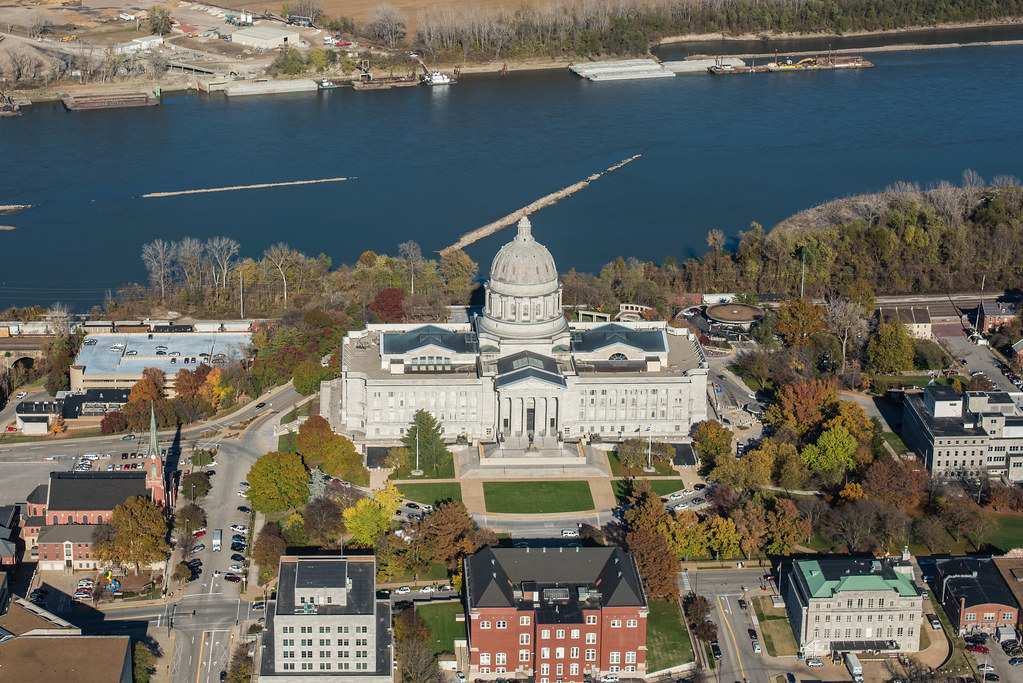
“D5968_CM_R2-99” by MoDOT Photos is licensed under CC BY-NC-SA 2.0
Part two of a two-part series on Medicaid expansion in Kansas and Missouri. Part one can be found here.
Much like Kansas, Missouri is one of the 14 states that has yet to expand its Medicaid program under the provisions of the Affordable Care Act. While in Kansas the battle over Medicaid expansion has been a major battle in the state legislature, in Missouri the final decision may come down to the voters.
In Missouri, non-disabled adults are not eligible for Medicaid coverage, and parents are only eligible if they are making up to 22 percent of the federal poverty line. In Kansas, this cap is 38 percent of the federal poverty line. At 18 percent, only Texas and Alabama have a lower cap for Medicaid eligibility than Missouri.
Under the Affordable Care Act, people making between 100 percent and 400 percent of the federal poverty line are eligible for subsidized private health insurance plans from the Federal government. Just like in Kansas, this means many people do not make enough money to qualify for subsidized private health plans but make too much money to qualify for Medicaid. A single parent making more than $2,892 a year but less than $16,910 a year falls into this gap and is ineligible for either Medicaid or subsidized private insurance.
It is estimated that with Medicaid expansion in Missouri, which would raise the cap on Medicaid eligibility to those making up to 138 percent of the Federal poverty line and extend eligibility to adults without children, between 219,000 and 327,000 people would gain access to healthcare.
The issue of Medicaid in Missouri was further complicated in August, when it was revealed approximately 120,000 Missourians were removed from the rolls for Medicaid registration between January 2018 and July 2019, the majority of them children. The reason for this drop in enrollment has led to a contentious partisan debate.
Democrats have cried foul play and accuse Republican Governor Mike Parsons of standing by while Medicaid recipients are being removed from the program under questionable circumstances. On the other hand, Governor Parsons and Republicans in the State Legislature attributed the drop to an improvement in the state’s economy and better technology enabling auditing of recipients. This, coupled with recent cuts to the program, has made the issue all the more pressing for advocates.
Previous attempts to pass Medicaid Expansion in the Missouri General Assembly have failed to even be debated, and most died in committee. The most recent attempt during the 2019 session did not even receive a hearing.
“An ideological unwillingness of the majority party to consider the legislation which stems from what I believe is their fear that the expansion of Medicaid might result in their loss of a supermajority, if not the loss of the majority outright,” State Representative and William Jewell Alumnus Mark Ellebracht (D-Liberty) said attributing this failure to Republicans.
With Republican supermajorities in both Houses of the General Assembly, and a Republican Governor, it is unlikely that Medicaid expansion will be passed by legislative means. As a result many advocates have turned to the ballot initiative system, hoping to put the issue before Missouri voters in 2020.
In September the Healthcare for Missouri coalition launched a petition campaign to get Medicaid expansion on the ballot in 2020.
“For years, we have worked with the Missouri legislature to expand Medicaid and health care options for our neighbors – but we can no longer wait on politicians to do the right thing,” according to a spokesperson for Missouri Jobs with Justice, one of the organizations involved in the Healthcare for Missouri coalition.
To get the issue on the ballot advocates will need to collect more than 170,000 signatures by May 3, 2020, and already have begun collecting signatures across the state. According to Missouri Jobs with Justice, over 16,000 signatures have already been collected from across the state.
The campaign has also raised over $2.2 million to support its efforts, with large donations being made by the Kansas City-based Health Forward Foundation, BJC HealthCare in St. Louis, the Missouri Hospitals Association and the Sixteen Thirty Fund, a liberal non-profit group based in Washington D.C.
This could prove to be a winning strategy. Previous ballot initiatives on Medicaid expansion have been successful in Maine in 2017, and in Utah, Idaho and Nebraska in 2018. With voters in other solid red states voting in favor of Medicaid expansion, Missouri stands a good chance of following suit next fall. This is further supported by other ballot initiatives in Missouri, such as the failure of Proposition A, and the success of the Clean Missouri ballot initiative and the Minimum wage increase passed by Missouri voters in 2018.
“I am optimistic that the voters of the State of Missouri will do what is in their best interest, as they did on Proposition A and increasing the minimum wage,” Ellebracht said.
While the fate of Medicaid expansion in Kansas is ultimately dependent on the legislature, in Missouri the decision may come down to the voters. Medicaid expansion advocates have a long road ahead of them, and it will remain to be seen if they will collect the 170,000 signatures required by May. While advocates are optimistic, Missouri voters may get the final say on Medicaid expansion.
